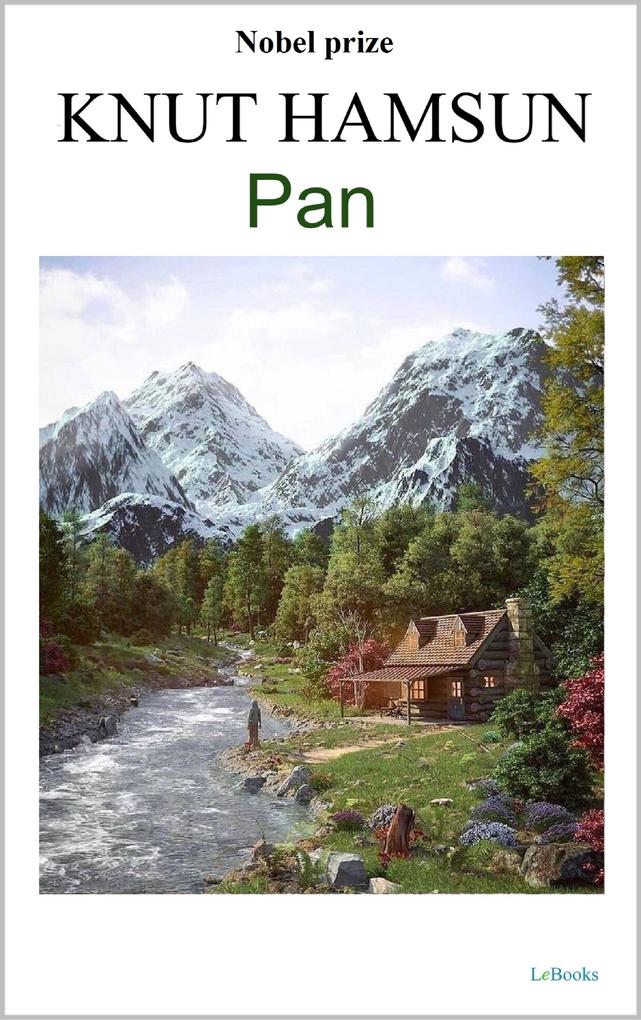Bücher versandkostenfrei*100 Tage RückgaberechtAbholung in der Wunschfiliale
Nur noch heute: 15% Rabatt11 auf Kalender & Schreibwaren mit dem Code DATUM15
Jetzt einlösen
mehr erfahren
Sofort lieferbar (Download)
Pan is an evocative exploration of isolation, nature, and the emotional turbulence of human desire. Knut Hamsun delves into the mind of Lieutenant Thomas Glahn, a solitary man living in the wilderness of northern Norway, who forms a complex and destructive attachment to Edvarda, a woman from a nearby village. Through Glahn's interactions with the natural world and his tumultuous relationship with Edvarda, Hamsun presents an introspective look at the thin line between passion and self-destruction.
Since its publication, Pan has been acclaimed for its raw portrayal of psychological conflict and the profound effects of solitude on the human spirit. Hamsun's vivid descriptions of the Scandinavian wilderness mirror Glahn's inner struggles, making nature both a refuge and a reflection of his mind. This unique narrative style, often associated with Hamsun's early works, has influenced existential and modernist literature deeply, leaving an enduring impact.
The novel remains relevant due to its introspective view on human nature and its exploration of the complexities of love and obsession. By delving into Glahn's psyche and his interactions with the natural world, Pan raises timeless questions about identity, the pursuit of happiness, and the often-destructive nature of unrestrained passion.
Since its publication, Pan has been acclaimed for its raw portrayal of psychological conflict and the profound effects of solitude on the human spirit. Hamsun's vivid descriptions of the Scandinavian wilderness mirror Glahn's inner struggles, making nature both a refuge and a reflection of his mind. This unique narrative style, often associated with Hamsun's early works, has influenced existential and modernist literature deeply, leaving an enduring impact.
The novel remains relevant due to its introspective view on human nature and its exploration of the complexities of love and obsession. By delving into Glahn's psyche and his interactions with the natural world, Pan raises timeless questions about identity, the pursuit of happiness, and the often-destructive nature of unrestrained passion.
Mehr aus dieser Reihe
Produktdetails
Erscheinungsdatum
28. Oktober 2024
Sprache
englisch
Seitenanzahl
90
Dateigröße
0,95 MB
Reihe
Nobel Prize
Autor/Autorin
Knut Hamsun
Verlag/Hersteller
Kopierschutz
mit Wasserzeichen versehen
Family Sharing
Ja
Produktart
EBOOK
Dateiformat
EPUB
ISBN
9786558946489
Entdecken Sie mehr
Bewertungen
0 Bewertungen
Es wurden noch keine Bewertungen abgegeben. Schreiben Sie die erste Bewertung zu "PAN" und helfen Sie damit anderen bei der Kaufentscheidung.














